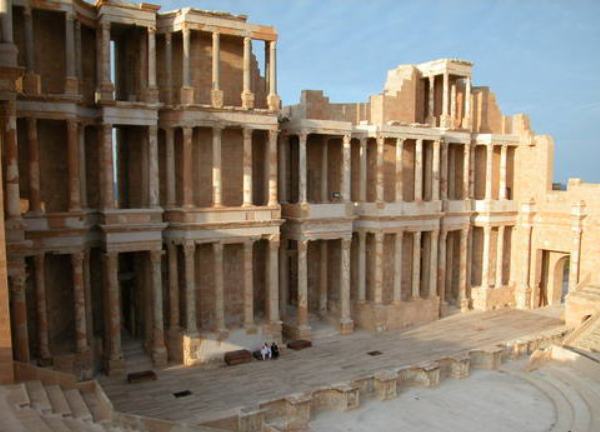UNESCO was informed, by several sources on 21 September that military action is intensifying within and around the Archaeological Site of Sabratha in Libya, inscribed on the World Heritage List since 1982.
In view of this situation, the Director-General of UNESCO, Irina Bokova, calls on all parties to cease violence and ensure the protection of Sabratha’s invaluable cultural heritage, including its archaeological museum. The Director-General underscored the need to protect cultural heritage in times of conflict, as recently urged by the UN Security Council in its Resolution 2347, notably.
"I call on all parties to ensure the safeguarding of Sabratha’s unique cultural heritage. I appeal to all to refrain from any military use or targeting of cultural heritage sites and their immediate surroundings, in respect of the provisions of the Hague Convention of 1954 for the Protection of Cultural Property in the Event of Armed Conflict. Libyan heritage is the expression of a shared memory of the country, and its protection represents a corner stone for long lasting national reconciliation, resilience and peace. It must be kept out of conflicts," said Ms. Bokova.
The World Heritage Archaeological Site of Sabratha, once a Phoenician trading-post that served as an outlet for the products of the African hinterland, was part of the short-lived Numidian Kingdom of Massinissa before being Romanized and rebuilt in the 2nd and 3rd centuries A.D.
"UNESCO is committed to work with all Libyan cultural professionals to reinforce emergency measures for cultural heritage protection, and enable the rapid assessment, documentation and monitoring of heritage. We will spare no efforts in supporting Libyans to protect their heritage, as a source of dignity and confidence for the future of all Libyans.” continued Irina Bokova.
(Source: UNESCO)





